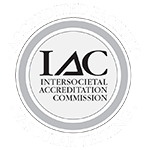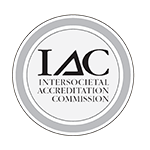
Vascular medicine is a specialized field of healthcare that deals with a wide range of conditions affecting the circulatory system. While most people are familiar with common vascular issues like atherosclerosis and varicose veins, there are more rare and lesser-known conditions that fall under the purview of vascular specialists. One such condition is Popliteal Artery Entrapment Syndrome, or PAES.
PAES is an unusual disorder that predominantly affects young athletes, and it highlights the remarkable breadth and depth of the vascular specialty. In this blog post, we will delve into the world of PAES, exploring its causes, symptoms, diagnosis, and treatment, drawing upon information from some of the top medical institutions.
Understanding Popliteal Artery Entrapment Syndrome (PAES)
Popliteal Artery Entrapment Syndrome (PAES) is a vascular condition characterized by the compression or entrapment of the popliteal artery. The popliteal artery is the major blood vessel that supplies blood to the lower leg, including the knee joint and calf muscles. In individuals with PAES, the popliteal artery becomes compressed during physical activities that involve repetitive knee movements, such as running, cycling, or squatting.
Causes of PAES
PAES typically occurs when the anatomical relationship between the popliteal artery and the surrounding muscles and tendons is abnormal. The most common cause of PAES is an abnormality in the popliteal artery's course. This abnormality can be present from birth and may lead to the artery becoming entrapped or compressed during specific movements of the leg.
Symptoms of PAES
The symptoms of PAES can vary from person to person but commonly include:
- Leg pain: Individuals with PAES may experience pain in the back of the knee or calf during physical activities.
- Fatigue or weakness: The affected leg may feel weak or tired during exercise.
- Numbness or tingling: Some people with PAES may experience numbness or tingling in the lower leg.
- Coldness or discoloration: Reduced blood flow to the lower leg can result in coldness and skin discoloration.
Diagnosis of PAES
Diagnosing PAES can be challenging due to its rarity and the variability of symptoms. However, vascular specialists typically employ a combination of methods, including:
- Physical examination: The doctor may perform a physical examination and ask about the patient's medical history and symptoms.
- Imaging tests: Ultrasound, magnetic resonance angiography (MRA), and computed tomography angiography (CTA) can help visualize the blood flow and identify the compression of the popliteal artery.
- Stress tests: Dynamic imaging during exercise, such as a treadmill test, can reveal the artery's compression during physical activity.
Treatment of PAES
The treatment for PAES depends on the severity of the condition and the impact on the patient's daily life. Conservative treatments include rest, physical therapy, and modification of activities to reduce symptoms. In more severe cases or when conservative measures fail, surgical intervention may be recommended.
Surgery for PAES involves releasing the entrapment and restoring normal blood flow to the lower leg. The specific procedure can vary based on the patient's unique circumstances and the surgeon's expertise.
If you suspect that you or someone you know may have PAES, it's essential to consult with a board-certified vascular specialist for a proper evaluation and personalized treatment plan. With the guidance of medical professionals, individuals with PAES can manage their condition and continue to lead active, healthy lives.








_2.jpg)